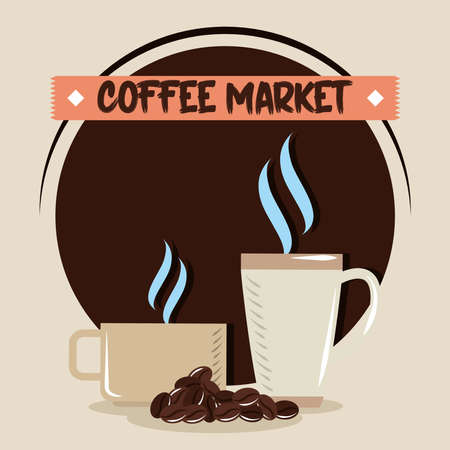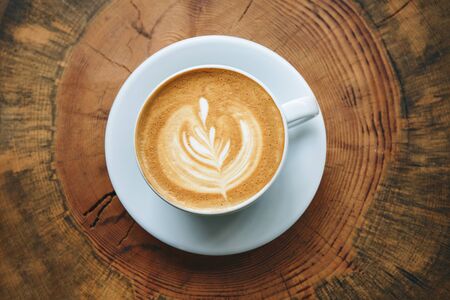Understanding Ethical Coffee: Buzzwords and Badges
Wandering down the coffee aisle in a British supermarket or eyeing the blackboard at your local independent café, you’ll likely find yourself awash in a sea of ethical promises. Words like “Fairtrade”, “Rainforest Alliance”, and “Organic” are peppered across packaging and menus, each promising a better brew for both people and planet. But what do these badges really mean here in the UK?
Fairtrade is perhaps the most recognisable symbol for the conscious consumer. When you see that familiar blue-and-green logo, it means the coffee farmers have received a minimum price for their beans and an additional premium to invest back into their communities. In the UK, Fairtrade is more than just a marketing flourish; it’s backed by rigorous standards checked by the Fairtrade Foundation, ensuring transparency from crop to cup.
Next up is the Rainforest Alliance frog – a badge that’s been hopping onto more bags in recent years. This certification focuses on environmental stewardship, biodiversity, and better livelihoods for farmers, but it’s less about fixed prices and more about sustainable farming practices. For those who care deeply about wildlife and forests as much as fair pay, this might be your go-to label.
The Organic label speaks to methods rather than markets. If your coffee is Soil Association certified organic in the UK, it means no synthetic pesticides or fertilisers were used, protecting both ecosystems and farm workers. You might also spot EU organic logos on packs, signalling compliance with strict European standards even post-Brexit.
But beware: words like “ethical”, “sustainable”, or “responsibly sourced” can sometimes float around without official backing. These buzzwords sound lovely but often lack the robust checks provided by third-party certifications. When in doubt, look for clear labels and don’t be shy to ask baristas or shop staff about their sourcing policies – in Britain’s ever-curious café culture, they’re usually happy to chat over a flat white.
In short, identifying ethically sourced coffee in the UK is all about decoding these badges and understanding their roots. The next time you’re picking up your morning fix, take a moment to stroll through these signposts – your tastebuds (and your conscience) will thank you.
2. Decoding the Label: Navigating Supermarket Shelves
Strolling down the supermarket aisle in the UK, you’ll notice coffee packaging is a patchwork quilt of colours, badges, and origin tales. But how do you separate the ethically-sourced gems from the run-of-the-mill blends? Here’s a city dweller’s guide to decoding those bags of beans—practical, British, and just a tad discerning.
Certifications: The Trusty Badges
When it comes to ethics, certifications are your first port of call. These little logos aren’t just for show; they’re a shorthand for fair wages, sustainable farming, and traceability. Here’s a quick cheat sheet for your next Tesco or Waitrose run:
| Certification | What It Means | UK Presence |
|---|---|---|
| Fairtrade | Guaranteed minimum price for farmers; community projects funded. | Common in supermarkets & high street chains. |
| Rainforest Alliance | Sustainable agriculture, wildlife protection, better livelihoods. | Often seen on mainstream brands like Kenco & PG Tips. |
| Soil Association Organic | No synthetic pesticides/fertilisers; supports biodiversity. | Found in independent shops and premium ranges. |
| B Corp Certified | Total company commitment to social & environmental impact. | Gaining popularity with boutique roasters. |
The Small Print: Reading Beyond the Badge
The British penchant for detail serves well here. Beyond the big badges, check for specifics about origin. Does it list a single estate or cooperative? Are farmers’ stories shared on the pack? Ethically minded brands love transparency—look for mentions of direct trade or relationships with growers by name (not just “South America” but “Yirgacheffe, Ethiopia” or “San Juan Co-op, Guatemala”). If you see QR codes, give them a scan—many link to supply chain info or farmer profiles nowadays.
The Blend vs. Single Origin Dilemma
If you prefer blends (a classic British café au lait staple), don’t fret. Ethical sourcing isn’t just for single origins. Look for blends that specify the provenance of each component or highlight collaborative sourcing initiatives. Transparency is king.
A Local Lens: The British Way
Avoid falling for vague claims like “ethically sourced” without evidence. In the UK, reputable brands back up their buzzwords with details—a nod to our national love of accountability and tea-time debates. When in doubt, ask staff (especially at smaller grocers and indie shops); there’s often local knowledge behind the counter eager to share the story behind your morning brew.

3. Coffee Shop Culture: Spotting Ethically Sourced Brews on the High Street
Let’s be honest, the humble British high street is a patchwork of indie cafes and familiar chains, each promising your daily fix of caffeinated comfort. But how do you know if your flat white or cortado is as ethical as it is delicious? Sometimes, it all starts with a friendly natter. Don’t be shy about chatting to your barista—most are happy to spill the beans (pun intended) about where their coffee comes from. Ask about certifications like Fairtrade, Rainforest Alliance, or direct trade relationships; if they light up and wax lyrical about their sourcing, you’re probably in good hands.
Sustainable Cues: Reading Between the Lines—and the Menus
Keep your eyes peeled for subtle signals that scream sustainability. Recycled paper menus, reusable cup incentives, and posters celebrating traceable origins are more than aesthetic choices—they’re ethical ones. Many cafes display their suppliers proudly, so take a gander at the boards behind the counter or ask for details if you don’t spot any clues. Chains like Pret and Costa have started trumpeting their ethical credentials, but indie coffee shops often go a step further, forging direct partnerships with small producers. In both cases, transparency is king.
Chains vs Indies: Who’s Walking the Ethical Talk?
Big names on the high street have made strides—Greggs, for instance, champions 100% Fairtrade coffee beans. Pret A Manger highlights organic blends and transparent supply chains. Still, the real darlings of ethical sourcing are often those tucked-away independents who know their farmers by name and can tell you the story behind each batch. If you want to put your money where your mug is, opt for local cafes that host origin talks or advertise cupping events featuring visiting growers.
The Takeaway: Make Your Order Count
Next time you’re queueing for a caffeine hit, take a moment to strike up a conversation and scan your surroundings for signs of sustainable practice. Whether you’re on bustling Oxford Street or meandering through an East London backstreet, remember: every order is a vote for the world you want to sip in.
4. Beyond the Badge: Recognising Genuine Ethical Practices
When you’re standing in the aisles of a Tesco or sipping a flat white in an East London café, it’s easy to reach for the familiar ethical badges—Fairtrade, Rainforest Alliance, Organic—and feel you’ve done your bit. But in the world of UK coffee, a logo isn’t the end of the story. It’s just the beginning. Here’s how to dig deeper and discover which brands are genuinely supporting both farmers and the planet.
Why Go Beyond the Logo?
Ethical certifications do offer assurance, but they aren’t flawless. Some schemes have been criticised for bureaucracy or not passing enough benefits to growers. British coffee drinkers are increasingly savvy, wanting more than a sticker on the pack—they want real impact.
Questions to Ask (and Who to Ask)
| Where | What to Ask |
|---|---|
| Supermarkets | Is there information beyond the label? Does the brand share stories about its farmers or show transparency in sourcing on its website? |
| Coffee Shops | Ask baristas where their beans come from. Do they know about the farm or cooperative? Are they willing to talk about direct trade or sustainability practices? |
Spotting Genuine Commitment
- Transparency: Brands with nothing to hide are happy to share sourcing details—think origin stories, maps, or even QR codes on packaging leading to farmer profiles.
- Direct Trade: Some UK roasters skip middlemen, working directly with growers and paying above market price for quality beans. Look for this term and ask what it means to them.
- Sustainability Reports: Many ethically-minded companies publish annual impact reports. These will tell you if their support goes beyond rhetoric—look for numbers on environmental practices and fair pay.
Coffee Brands Walking the Talk
| Brand Name | Ethical Practice |
|---|---|
| Union Hand-Roasted | Publishes direct trade model details and impact statistics online |
| Pact Coffee | Features farmer profiles; transparent about pricing paid at source |
A Little Curiosity Goes a Long Way
If you’re keen to ensure your daily brew is as ethical as it is aromatic, don’t be shy about asking questions—British reserve be damned. The more we ask, the more brands know we care. True ethical sourcing lives not only on a badge, but in ongoing conversations between roasteries, retailers, baristas and all of us who cradle a cup each morning.
5. Local Initiatives: UK-Based Brands Making a Difference
When it comes to ethically sourced coffee, some of the most inspiring stories are brewing right here on British soil. The UK’s vibrant independent coffee scene is more than just flat whites and Instagrammable latte art—it’s a collection of trailblazers putting traceability and positive community impact at the heart of their craft. If you’re navigating supermarket shelves or scanning the menu at your favourite high street café, keep an eye out for these homegrown heroes.
Origin Coffee Roasters (Cornwall)
A true pioneer in the ethical coffee movement, Origin Coffee Roasters takes direct relationships seriously. They work closely with farmers across Latin America and Africa, ensuring transparency from bean to cup. Their B Corp certification underscores a commitment to both social responsibility and environmental stewardship—so whether you’re sipping their house espresso in a London café or picking up a bag in Waitrose, you’re supporting a brand that puts people first.
Union Hand-Roasted Coffee (London)
With “Sourcing with Impact” as their guiding principle, Union Hand-Roasted has long championed direct trade practices. They foster close partnerships with smallholder farmers, regularly visiting origin countries to ensure fair pricing and sustainable farming methods. Their beans are widely available in supermarkets like Sainsbury’s and Ocado—look for the “Union Direct Trade” badge as your signpost for genuinely ethical sourcing.
Grind (London & Online)
If you fancy your morning brew with a side of city cool, Grind is a brand that blends urban aesthetics with purpose-driven ethics. They’ve launched initiatives like refillable tins to reduce packaging waste, and their coffee is Rainforest Alliance certified. By roasting in London and engaging directly with producers, they deliver freshness alongside transparency—making them an easy ethical choice whether in-store or online.
Caravan Coffee Roasters (London)
Caravan’s approach is rooted in curiosity and connection; they source green beans through trusted partners and invest in projects that uplift local farming communities. Their dedication extends beyond taste—it’s about creating opportunities at origin, ensuring everyone along the supply chain benefits from your daily caffeine ritual.
Other Noteworthy Names
Don’t overlook smaller gems like North Star Coffee (Leeds), Girls Who Grind (Wiltshire), or Dear Green (Glasgow)—all independently minded roasteries making waves with transparent sourcing models and community outreach programmes. Choosing any of these brands means supporting businesses that care deeply about where their coffee comes from—and where it can take us next.
The next time you shop for beans or order your usual, remember: every cup is a chance to support ethical progress right here in the UK’s own back yard.
6. Tread Lightly: Your Role in the Ethical Coffee Movement
If you’ve ever stood in the coffee aisle of your local Sainsbury’s, or queued up for a flat white in an indie café along Shoreditch High Street, you’ll know that each choice feels like a small act—a daily ritual with global ripples. The UK’s love affair with coffee is more than a caffeine fix; it’s a chance to make mindful decisions that shape both the flavour in your cup and the fairness behind it.
Your Everyday Power as a Consumer
You don’t need to be an activist to nudge the world towards better coffee. By pausing to check for ethical certifications, asking questions about sourcing, or supporting shops that champion direct trade, you’re already part of the movement. Every time you opt for beans bearing credible labels—think Fairtrade, Rainforest Alliance, or Soil Association—you’re helping ensure fair wages and sustainable practices become the norm, not the exception.
Small Swaps, Big Impact
Start by swapping out your usual supermarket blend for one clearly labelled as ethically sourced. Or next time you’re out, pick the café that shouts about its single-origin brews and transparent supply chains. Even bringing your own reusable cup or cutting back on waste adds another layer to your conscious coffee routine.
Keep Asking, Keep Learning
The landscape of ethical coffee is always evolving. Don’t be shy about chatting with baristas—they’re often brimming with knowledge and passion. Stay curious: follow UK-based ethical roasters on social media, read up on emerging standards, and swap tips with fellow caffeine enthusiasts. Your curiosity helps keep brands accountable and encourages even more transparency across the industry.
In the end, every thoughtful choice—however small—helps ensure that your daily brew is as just as it is delicious. So go ahead: enjoy your morning cup, knowing you’ve made a difference with every sip.


